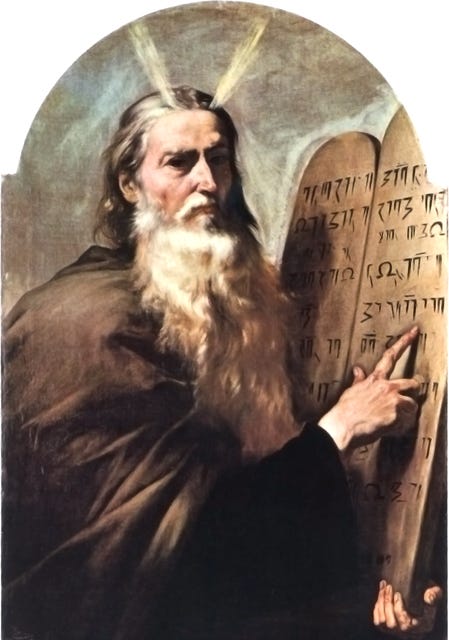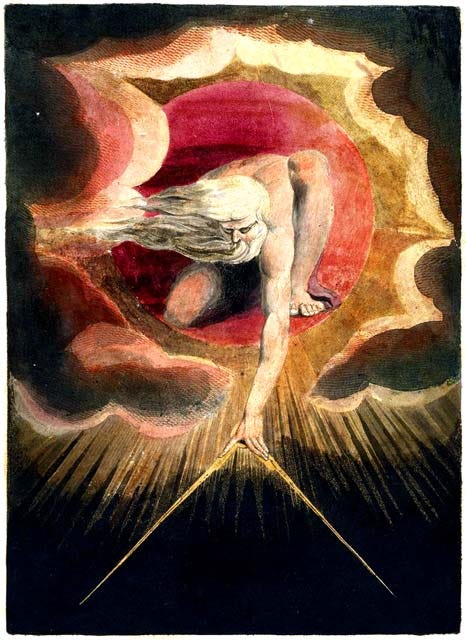Before we get to the first verses of Genesis, the Bible's first book, we need to talk just a little bit about the divisions in which these verses are included. Like a Russian doll going from outside to in, they are: The Bible, the "Old Testament," the Pentateuch (called the "law"), and finally the book of Genesis.
 |
| Genesis in the context of the "Law" (the Pentateuch); the "Old Testament"; and the Bible. |
The Bible and the "Old Testament"
The Bible is divided into two major portions: the first, called by Christians "The Old Testament" (which means a covenant or written agreement, in this case between God and humans), is made up of 39 books which are virtually identical in content to the Hebrew Scriptures as used by the Jewish religion, though the books in the Christian version are divided differently from the Jewish one, and are presented in a different order. (The Catholics add seven which are not in the Hebrew version at all; hence their Old Testament has 46.) Incidentally, the second portion of the Bible, called "The New Testament"--which we won't get to for quite some time--comprises, for both Protestants and Catholics, 27 books based on the life and teachings of Jesus Christ. These, then, are the uniquely Christian Scriptures.
The Pentateuch, or the Five Books of Moses
 |
| Moses and his tablet(s). We'll talk about these (and what's going on with his forehead) when we reach Exodus 20. |
The Hebrew Scriptures as we've received them fall naturally into four sections:
- The Pentateuch
- The History Books
- The Wisdom Books, and
- The Prophets
"Pentateuch" means simply "five scrolls" in Greek; the Jewish word Torah may be restricted to these five books, though it may also cover a larger selection of scriptures. It is also sometimes called the "law," because the later books include the so-called "laws of Moses." You may recall Jesus saying (in Matthew 22), "You shall love the Lord your God with all your heart, and with all your soul, and with all your mind. This is the first and great commandment. And the second is like it: You shall love your neighbor as yourself. On these two commandments hang all the law and the prophets." (The "Prophets" as Jesus knew them included most of what we call the major and minor prophets, as well as several of the history books.)
Anyway, I wonder, wonder who ba-doo-oo who: Who wrote the Pentateuch?
True Believers say that since Jesus (a first-century man) quoted Genesis uncritically and attributed it to Moses, it must be so. (Jewish tradition also ascribes them to Moses.) Thus they are called "The Five Books of Moses" and "The Law of Moses," even though the books themselves do not name any author. It's speculated that for quite some time no author was named; it was only after Jewish culture came into contact with the Greeks, who cared about such things, that the name of Moses became attached to them.
But modern scholarship--Jewish, Christian, and secular--paints a more complex picture, though traditionalists (include Christians "True Believers") insist on Mosaic authorship.
Textual analysis makes clear that the texts as received were edited together from various sources. One model, called the documentary hypothesis, suggests four such sources: the Jahwist (J), Elohist (E), Deuteronomist (D), and Priestly (P) sources. This goes way beyond our purview here, but will be brought up in the context of discussing some of the books, as it's especially useful in dealing with the perceived contradictions that Enemies of the Word are so fond of pointing out. It should be noted that the consensus among 20th century scholars regarding the documentary hypothesis has "collapsed" (Wikipedia's word) under more recent scholarship.
At any rate, what we see when we pick up a modern English Bible is a relatively cohesive, smooth-flowing story starting with creation and ending with the death of Moses. The five books are usually called in English Genesis, Exodus, Leviticus, Numbers, and Deuteronomy. We'll talk about each name as we get to the book.
Which brings us to:
The Book of Genesis
 |
| One of William Blake's versions of God creating the universe |
The name we use for this book is a common English word that points to origins, and the book does indeed cover the origin of the entire world (with its plants and animals, as well as humans), and more specifically the origin of the Jews as a people. In Hebrew Genesis is simply called Bereshit (פָּרָשָׁה), the first word of the text, which means "in [the] beginning."
The first eleven chapters have all the aroma of myth, being about the creation of the world; the "first people" (Adam and Eve) and their offspring (especially the first murder); the Tower of Babel and Noah's Ark. The remaining 39 chapters (there are 50 in all) tell the more history-ish stories of the patriarchs Abraham, Isaac, and Jacob, as well as his sons--especially Joseph. The story ends with the latter (he of the amazing Technicolor dream coat) and his eleven brothers in Egypt.
It might be worth your while to take a moment here to read the section "Where Did the Bible Come From?" on my "About" page, if you haven't already.

No comments:
I'd love to hear your thoughts!